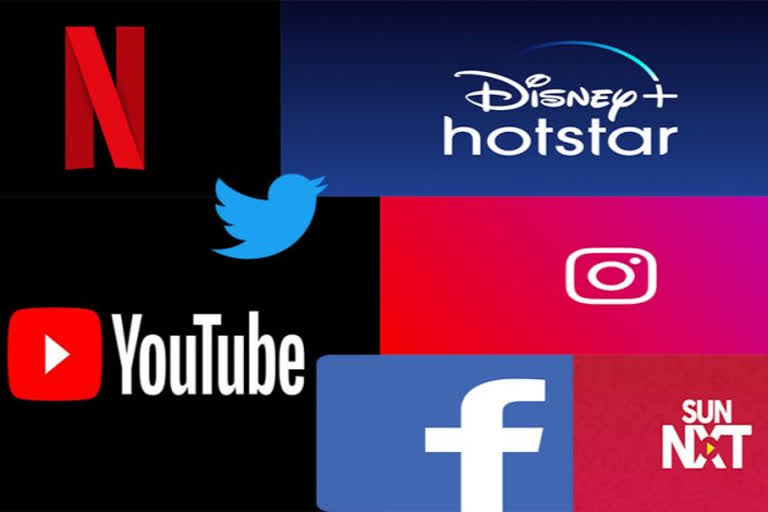Hyderabad: The government announced new rules to regulate digital content and establish what it called a "soft touch progressive institutional mechanism with level-playing field" featuring a Code of Ethics and a three-tier grievance redressal framework for news sites and OTT platforms.
The Centre on Thursday released guidelines for regulating social media and OTT platforms to curb misuse of content.
Here are the key points of the regulations:-
- Social media platforms have to give the reason for taking down the user's post.
- Social media sites have to disclose the "first originator" of any mischievous message.
- The government will designate an officer of the rank of a Joint Secretary or above as the "Authorised Officer" who can direct blocking of content. If an appellate body believes that the content violates the law, it is empowered to send the content to a government-controlled committee for blocking orders to be issued.
- Self-classification for streaming services on content that is for 13-plus, 16-plus or adults on the basis of age sex, violence and nudity. A mechanism for ensuring children do not access content not approved for them.
- Digital news media will follow rules under the Press Council of India. New websites will have to be registered on the Information and Broadcasting Ministry site.
- Curb on social media content that is defamatory, obscene, libellous, racist, harmful to minors, threatens the unity, integrity, defence, security or sovereignty of India and its ties with other countries.
- Companies have to appoint a grievance officer to receive, acknowledge and resolve complaints within a month.
- An intermediary has to, within 24 hours of a complaint, remove or disable access to content that is illegal or offensive.
- A three-tier mechanism to enforce the Code of Ethics: self-regulation; self-regulation by the self-regulating bodies; government's oversight mechanism.
ALSO READ: OTT rules aimed at freedom of speech: Congress
What different countries are doing to regulate content on OTT Platforms
As of 2021, the number of social media users is over 3.96 billion worldwide, with the average user having 8.6 accounts on different networking sites. The current percentage of people using social media is 50.64%% of the world’s total population.
Law on Social Media across countries
Germany
Germany's NetzDG law came into effect at the beginning of 2018, applying to companies with more than two million registered users in the country.
They were forced to set up procedures to review complaints about content they were hosting, remove anything that was clearly illegal within 24 hours and publish updates every six months about how they were doing.
Individuals may be fined up to €5m ($5.6m; £4.4m) and companies up to €50m for failing to comply with these requirements.
European Union
The EU also introduced the General Data Protection Regulation (GDPR) in April 2016 which set rules on how companies, including social media platforms, store and use people's data.
It has also taken action on copyright. Its copyright directive puts the responsibility on platforms to make sure that copyright-infringing content is not hosted on their sites.
Australia
Australia passed the Sharing of Abhorrent Violent Material Act in 2019, introducing criminal penalties for social media companies, possible jail sentences for tech executives for up to three years and financial penalties worth up to 10% of a company's global turnover.
In 2015, the Enhancing Online Safety Act created an eSafety Commissioner with the power to demand that social media companies take down harassing or abusive posts. In 2018, the powers were expanded to include revenge porn.
The eSafety Commissioner's office can issue companies with 48-hour "takedown notices",
Russia
A law came into force in Russia in November 2019 giving regulators the power to switch off connections to the worldwide web "in an emergency".
Russia's data laws from 2015 required social media companies to store any data about Russians on servers within the country.
China
Sites such as Twitter, Google and WhatsApp are blocked in China. Their services are provided instead by Chinese providers such as Weibo, Baidu and WeChat.
The Cyberspace Administration of China announced at the end of January 2019 that in the previous six months it had closed 733 websites and "cleaned up" 9,382 mobile apps, although those are more likely to be illegal gambling apps or copies of existing apps being used for illegal purposes than social media.
China has hundreds of thousands of cyber-police, who monitor social media platforms and screen messages that are deemed to be politically sensitive.



